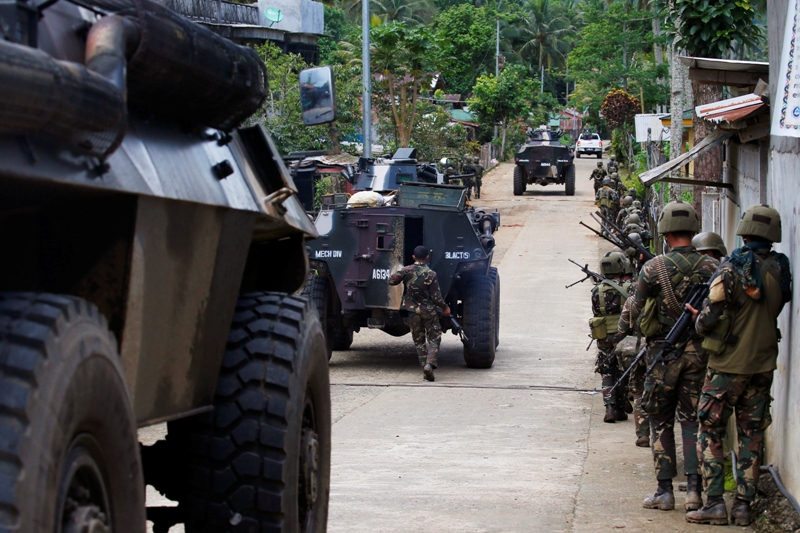Defense chief: Bulk of Marawi siege funding came from drugs

Philippine forces continue to battle Islamist militants in Marawi City. AP/Bullit Marquez, File
MANILA, Philippines — Defense Secretary Delfin Lorenzana clarified on Monday that although some financial support came from the so-called ISIS central in the Middle East a big chunk of the funding for the operations of Islamist militants still holed in Marawi City came from drug money.
Lorenzana's clarification came after the president revealed on Saturday a drug matrix purportedly showing politicians involved in the trade of illegal drugs who had been allegedly financing the campaign of Islamist militants who besieged Marawi City for more than four months.
The president wondered how the rebels lasted for months despite incessant government ground and air assaults and were able to stockpile supplies and ammunition enough to last this long.
"And three months, I said, there were still fighting. I don’t know if there’s fighting going on. But that is one. And we were looking for the source of the money. And I will just point out to you," Duterte said over the weekend.
At the presidential palace in Manila, Ernesto Abella, the president's spokesman, said that what the president was trying to demonstrate was that the so-called narco-politicians were "in cahoots" with local militant groups in Marawi who were able to stage the most serious terror event in the Philippines in many years.
Abella added that there could be multiple sources of funding for operations of the groups which attacked the Islamic city on May 23, prompting Duterte to place Mindanao under military rule.
"There are monies from ISIS ME (Middle East) but we now know that it is small amount. The big source of their funds is local drugs," Lorenzana told Philstar.com.
In July, the Institute for Policy Analysis of Conflict (IPAC) released a report showing that IS central made several periodic transfers of tens of thousands of dollars to support the local militants in Marawi City.
This provided the crucial link between the local siege and the central command of the so-called ISIS in the Middle East, according to the report.
The report also noted that local funding, mainly from local residents said to be resenting brutality of military and security forces, played a significant, if not more prominent, role in fueling the militants' operations.
IPAC, however, did not mention that narcotics was a source of this local support.
"Funds for the Marawi operation came both directly from ISIS central as well as local sources,” said the IPAC report.
When asked about the next steps of the government following the release of the drug matrix, Abella could not give any specific detail except that the president had a "plan in mind."
"We can all trust that the president will—not just the president but the whole force of government will be exercised in order to make sure that his campaign promises regarding drugs and corruption and crime will be addressed," he said.
- Latest
- Trending































